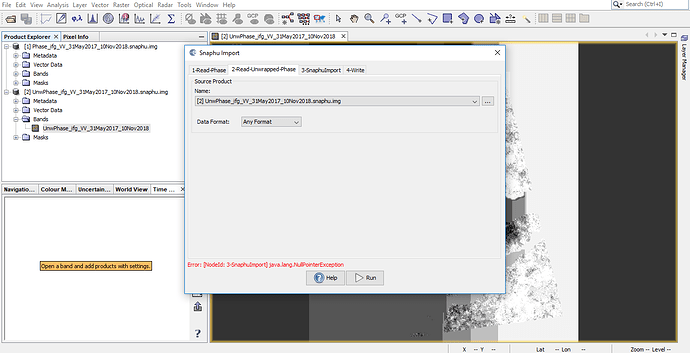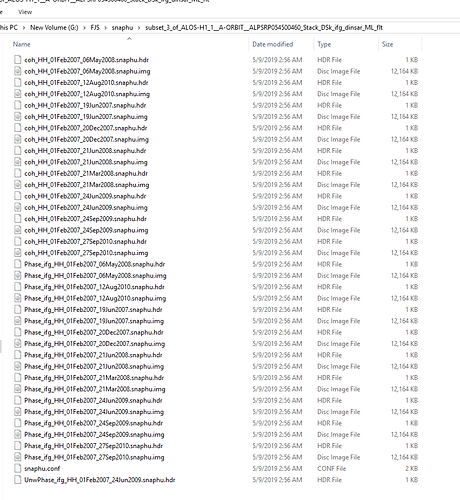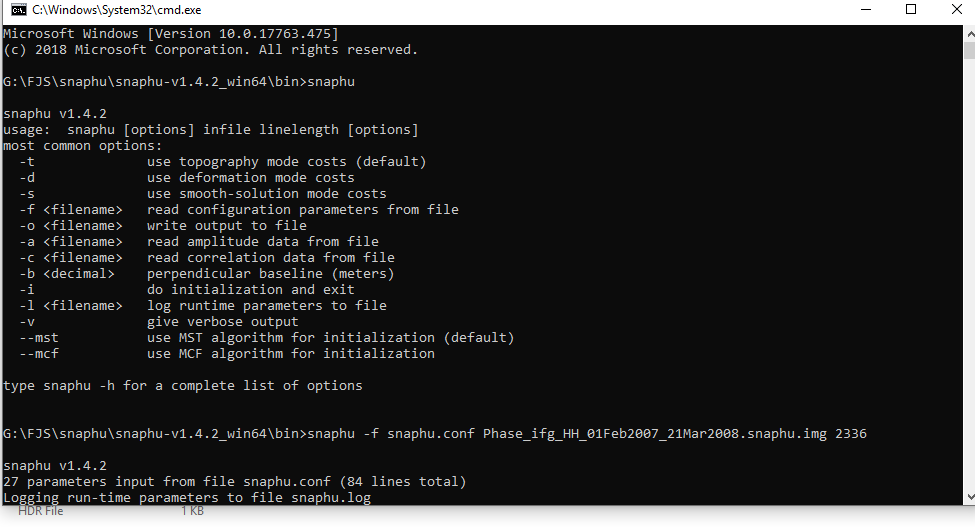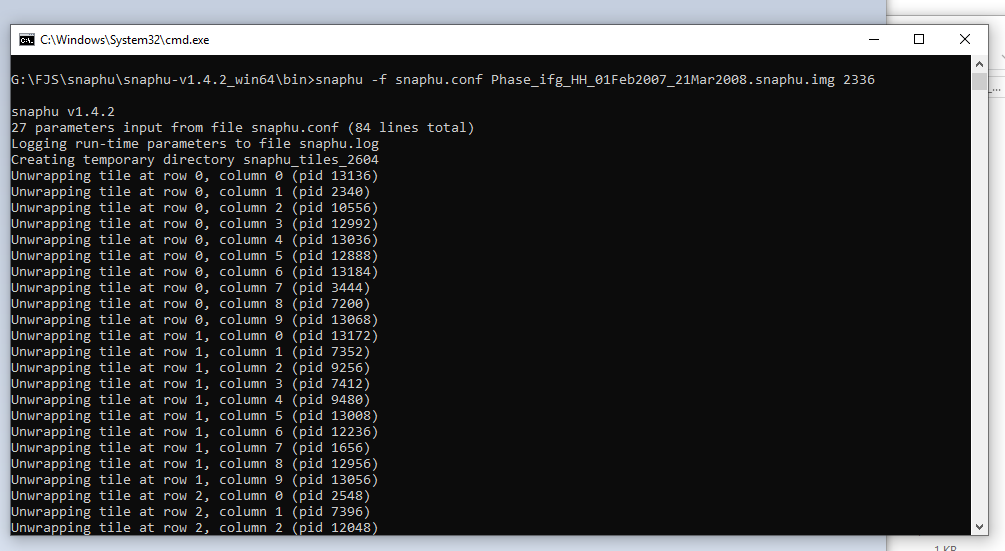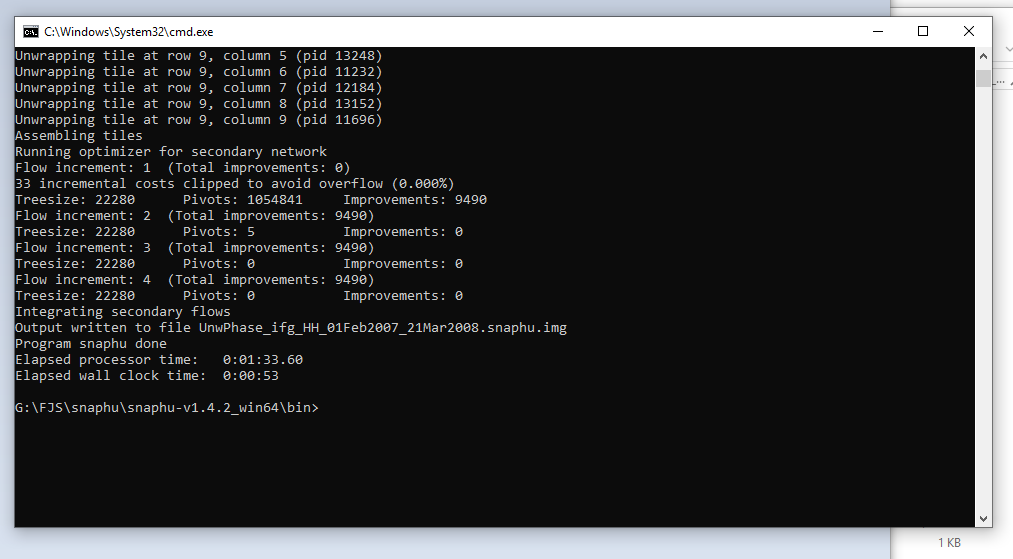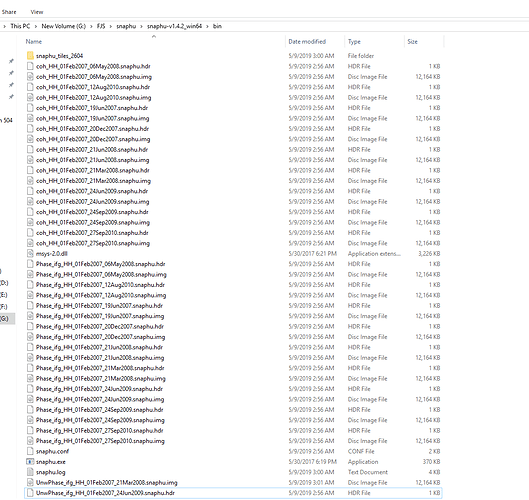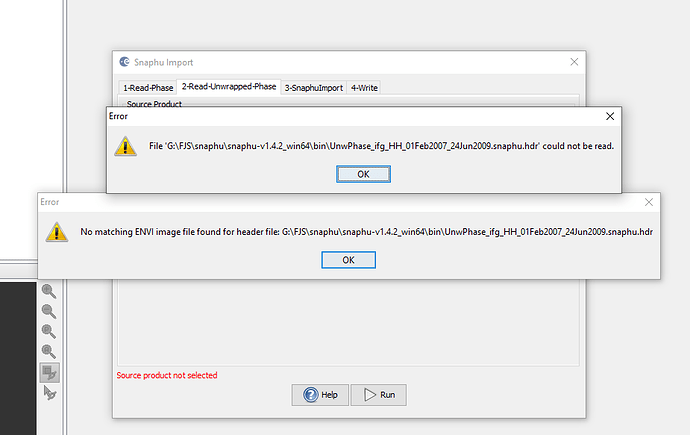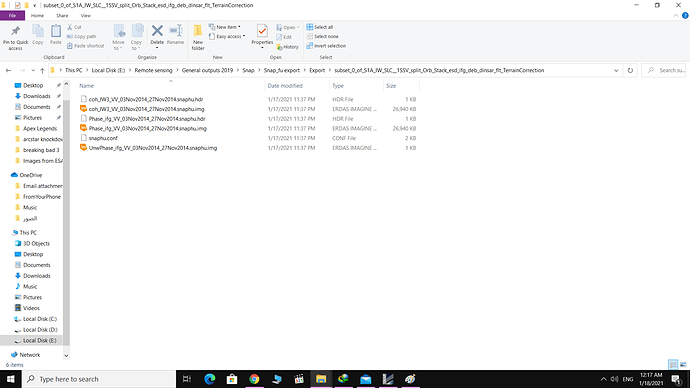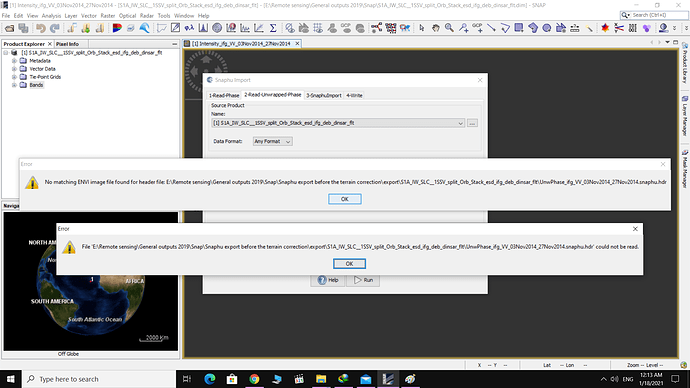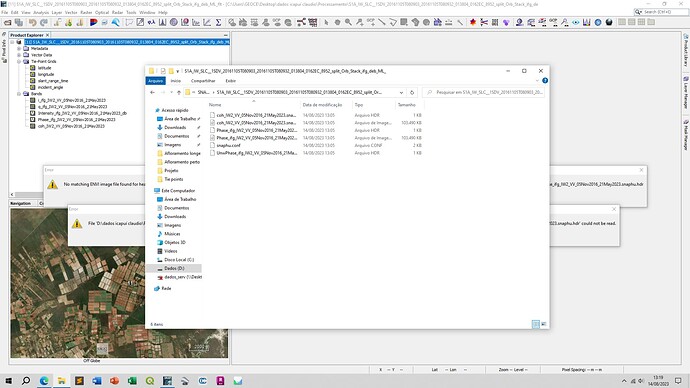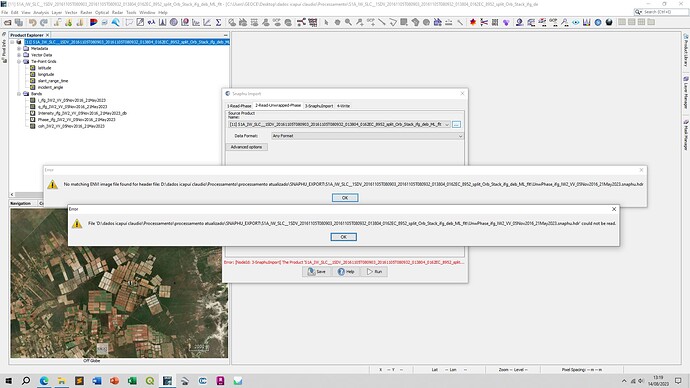now I understand.
I would still recommend this:
Did you able to solve this issue?
.hdr could not be read?
It is all about selecting the correct products in the import module, please see here: Problem in Snaphu Import section
If you select the wrong products or miss a crucial step, you will get the error message.
Dear all, I am facing this problem (java lang null pointer exception) while snaphu import. What could be the reason. Thank you to all.
why are your products called *.img?
To conserve all metadata, you should stick to the BEAM DIMAP format.
Well, I’m going to process again. Thank you so much
Dear all,
I’m facing problem while SNAPHU import. I’ve read all other comment and tried everything but can’t solve the problem. Can anyone help me please. It’s urgent.
SNAPHU export folder contain:
While running SNAPHU:
Import Folder:
All I understant that for read1 I’ve to select the dim file before snaphu export.
And for read2 I’ve to select the unwrapped file .hdr file. But I’m getting the same error again and again… Please help.
Ideally the product contains only one interferogram before the snaphu output, so that nothing gets mixed up in the later import.
Feb-Mar was unwrapped the import searches for Feb-Jun.
so, what should I do now?
Try a unwrapping a single pair interferogram (and select only VV).
Especially if you want to analyze a longer time series it makes sense to coregister only images of subsequent dates (AB BC CD DE…) instead of using one master image for many slaves (AB AC AD AE), because this avoids temporal decorrelation.
Try a unwrapping a single pair interferogram (and select only VV).
Especially if you want to analyze a longer time series it makes sense to coregister only images of subsequent dates (AB BC CD DE…) instead of using one master image for many slaves (AB AC AD AE), because this avoids temporal decorrelation.
If VV polarized data is not available in the required area then what should I do? change the area or any way to work with HH polarized data?
yes, HH is fine as well. I just meant that some people left in the cross-pol (VH or HV) band and this also caused problems in the past.
I have tried exporting the interferomgram after filtering but before the terrain correction to perform phase unwrapping and here are the products
the only product from Snaphu unwrapping process was
“UnwPhase_ifg_VV_03Nov2014_27Nov2014.snaphu.img”
which I am not quite sure why, then I tried to import and select the “UnwPhase_ifg_VV_03Nov2014_27Nov2014.snaphu.hdr” file from the export folder in 2-read-unwrapped-phase and I still got these two errors.
- what’s the importance of Snaphu unwrapping if the hdr file required in 2-read-unwrapped-phase was originally created in the export folder not after Snaphu unwrapping?
- Why am I getting those two erros? please any help would be appreciated
My suggestion is to perform Terrain Correction as a last step.
After the snaphu export, there should be only “UnwPhase_ifg_VV_03Nov2014_27Nov2014.snaphu.hdr”
Then you run SNAPHU and get UnwPhase_ifg_VV_03Nov2014_27Nov2014.snaphu.img”
Then you import the unwrapped file with “UnwPhase_ifg_VV_03Nov2014_27Nov2014.snaphu.hdr”
Then you perform phase to displacement and in the end terrain correction.
Maybe the steps in this tutorial are easier to follow along: Sentinel-1 TOPS interferometry
I did, I left the terrain correction to be done at the end and I tried to import the un-corrected “UnwPhase_ifg_VV_03Nov2014_27Nov2014.snaphu.hdr” file but still getting the same error, I am going to try the other Tutorial that you courteously provided and then I am going to give you a feedback, hopefully the problem will be fixed.
hi, I’ m passing for the same problem, but the unw img was not generate by the SNAPHU, despite I select the hdr on the READ-UNWRAPEED-PHASE. someone can help me?
I followed the tutorials but it presents this error
The unwrapped phase (img file) was not created by snaphu so there is nothing to import.
thanks for the answer. So, how can I create this img file if my unwrapped wasn’t been generate by the snaphu-unwrapping, what’s can be wrong?

